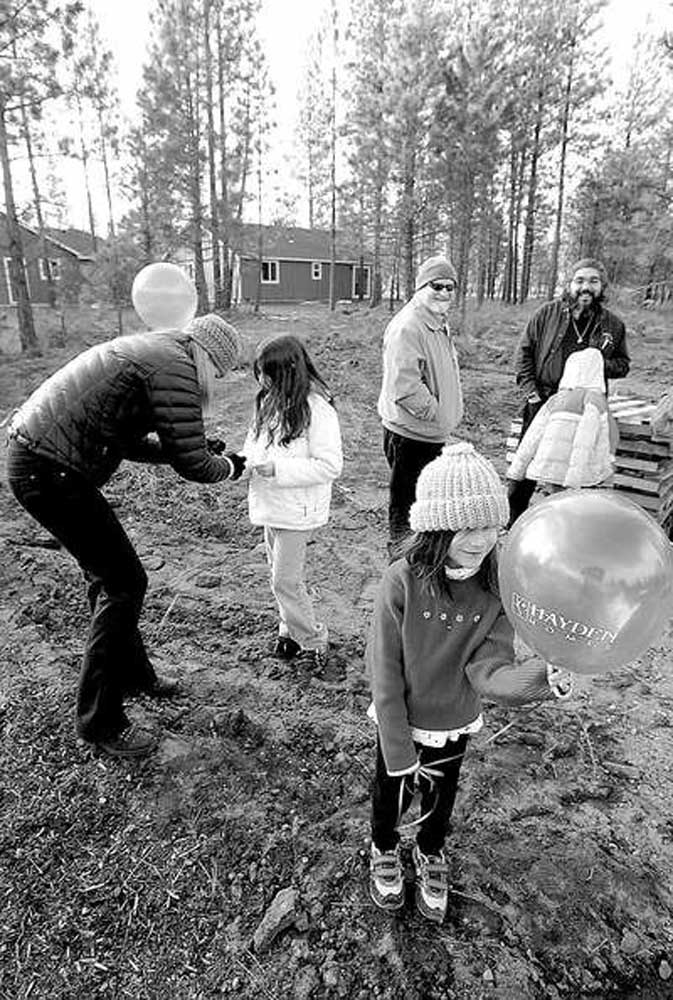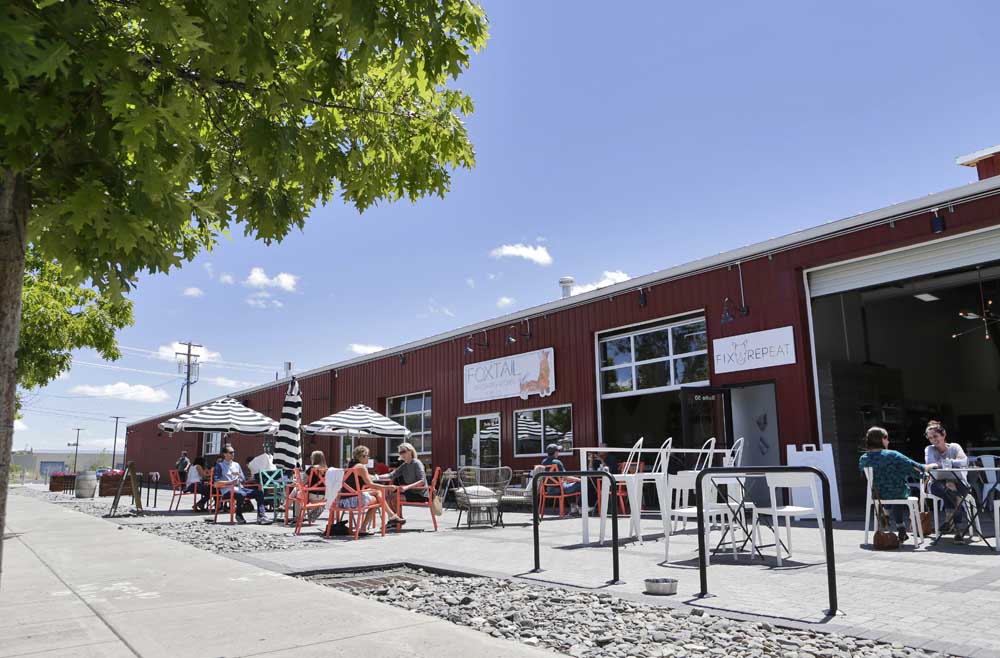Sisters homeowners sue to stop mandatory gifts for charitable housing
Published 12:00 am Saturday, March 16, 2019

- A crowd gathers before officials from the Hayden Giving Fund, the organization now called First Story, hand over the keys to a new home in 2013. (The Bulletin/file photo)
A homeowners association in Sisters says the deed restriction that Hayden Homes created to support its affordable housing charity is illegal, and it’s suing for the return of $2,690.
The Village at Cold Springs Homeowners’ Association filed a lawsuit Tuesday in Deschutes County Circuit Court against First Story, the nonprofit created by Redmond-based Hayden Homes. First Story intends to build 10 homes in McKenzie Meadows, a development Hayden has proposed near Village at Cold Springs. The homes are sold to qualifying families with zero down payment and zero-interest loans.
Trending
Village at Cold Springs residents have opposed the McKenzie Meadows master plan, which is scheduled to go before the Sisters Planning Commission on March 21. The plan calls for a minimum of 195 units, a combination of houses, townhouses and apartments.
“It’s puzzling to us, that this is a question at this time,” said Angela Price, chair of First Story’s board of directors.
Andrew Fitch, attorney for the Village at Cold Springs homeowners, said the lawsuit isn’t driven by opposition to affordable housing. “They object to the involuntary nature (of the charitable contribution),” he said.
Hayden set up the covenant with First Story on Village at Cold Springs in 2007, according to the lawsuit. The covenant requires one-eighth of 1 percent, or 0.00125 percent, of sales to be contributed to the nonprofit organization.
As the neighborhood’s developer and builder, Hayden made the first round of contributions when it sold lots to individuals, Fitch said. First Story continued to collect contributions with subsequent transactions, Fitch said.
Some homeowners who were selling noticed the fees deducted in their closing statements and brought them to the attention of the association, he said.
Trending
Hayden placed similar deed restrictions on its other Central Oregon subdivisions, but Village at Cold Springs is the first to challenge the “community charitable fee,” Fitch said. Oregon adopted the law against extracting fees through land covenants in 2009, he said.
The community charitable fee generated $666,305, or about 23 percent of First Story’s $2.9 million in revenue last year, according to the organization’s annual report.
The lawsuit seeks a declaratory judgment stating the covenant is void and an injunction requiring First Story to account for all the money it has collected since 2007 and issue refunds, including the $2,689.88 identified by the homeowners association.
Homeowners in other Hayden-built neighborhoods who object to the fees would have to pursue their own cases, Fitch said.
Price acknowledged that the charitable fee is integral to First Story’s bottom line. If the court decides it’s illegal, she said, “It would be something to address. At this point we’re really quite surprised and scratching our heads a little bit: why a program that is doing so much good where there is so much need is being challenged.”
First Story tries to build five houses a year in the three-state area where Hayden Homes operates, Price said. The organization has built 77 houses over the past 20 years.
In McKenzie Meadows, First Story plans to build 10 two-bedroom and three-bedroom homes, according to a fact sheet supplied by Hayden Homes. The prices will meet U.S. Housing and Urban Development standards for affordability to people earning 80 percent of the local median income. Eligible families must be living or working in Sisters or surrounding areas, have no negative credit accounts and complete a homeowner education program.
— Reporter: 541-617-7860, kmclaughlin@bendbulletin.com








